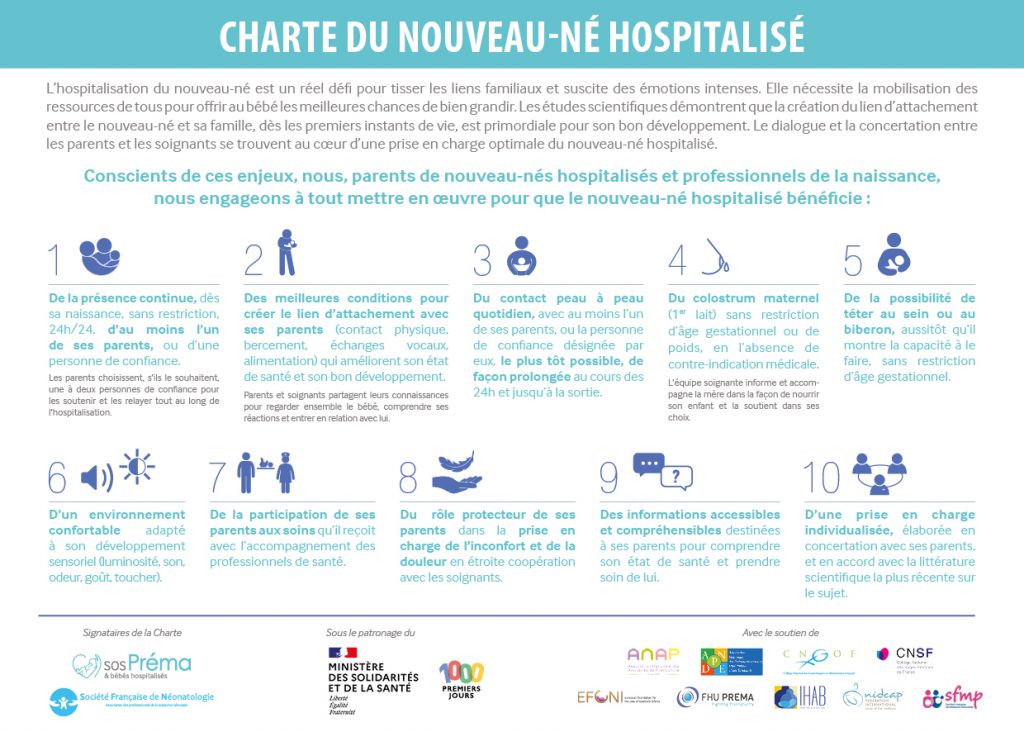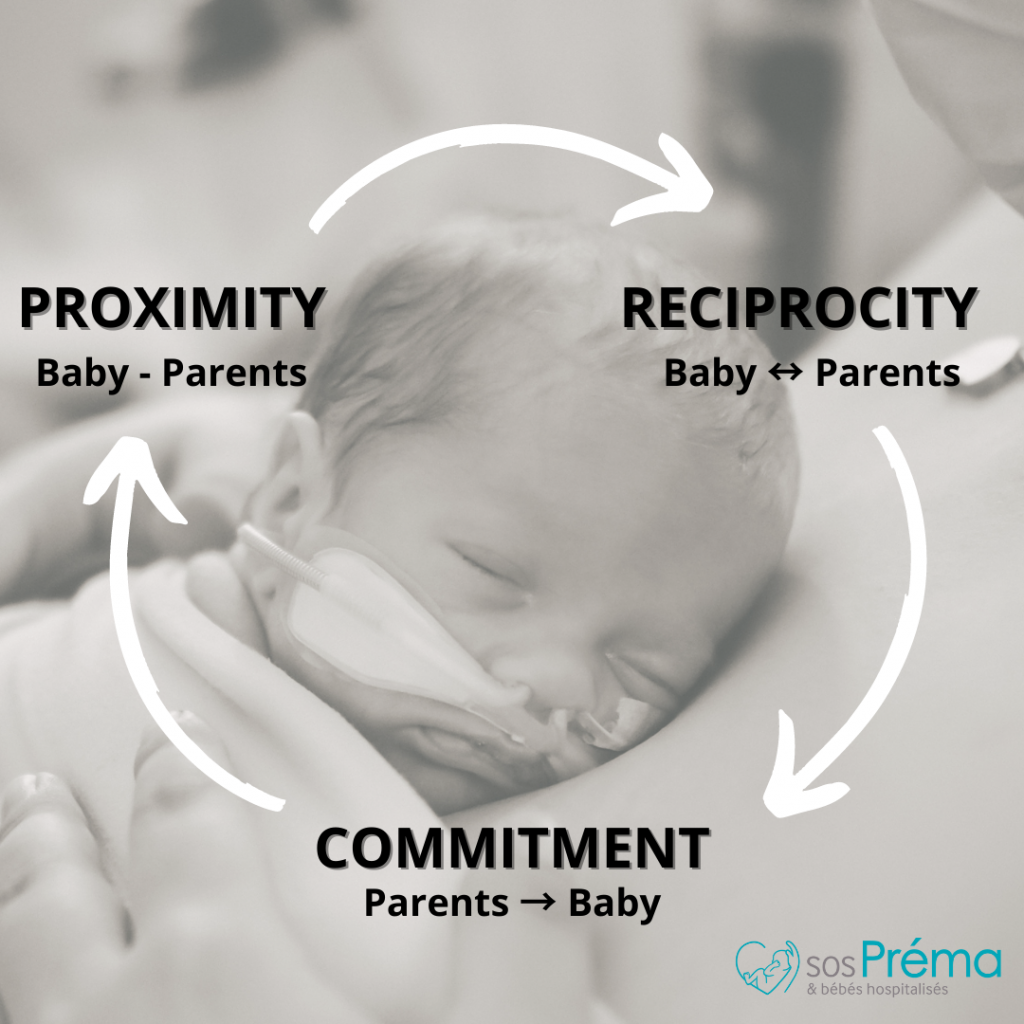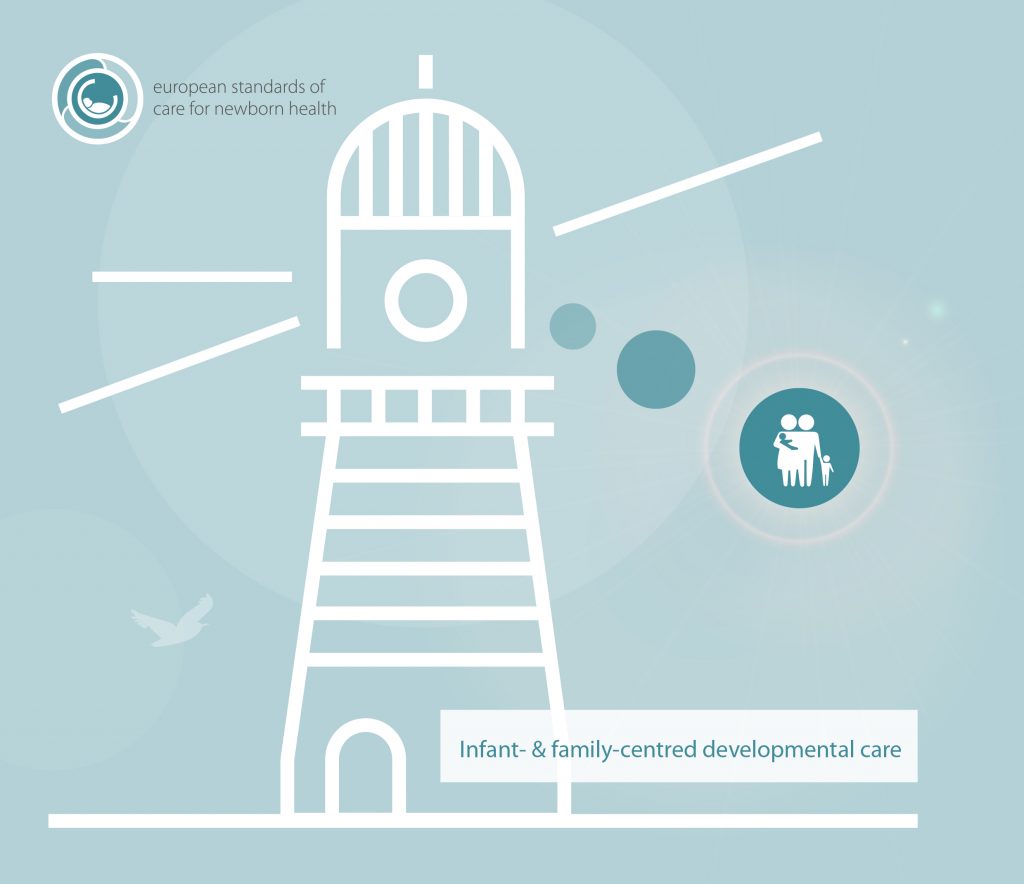
The Covid-19 pandemic and its unexpected and significant consequences in neonatal units in France and around the world made SOS Préma, a French parent- and patient organisation, aware of the fragile progress made over the last 30 years concerning parents’ place and their role in these units. This discrepancy had prompted the organisation to focus on the interests of parents of preterm and sick newborns and how they can be strengthened.
A guest article by Audrey Reynaud, from the French parent organisation, SOS Préma.

Despite all talks, in a large majority of French units, parents were still not considered essential for the good development of their hospitalized newborn baby. Although this fact is well established, during a pandemic, the question for professionals is no longer “can parents enter the unit?”, but rather “how can we secure the coming of parents -and professionals-, without risking a vast contamination?”
In order to avoid a recurrence of the situations encountered over the last two years, it was necessary to find a way to deeply anchor in practices and minds the essential presence of parents with their babies. To draft a charter of commitment quickly seemed to us to be the most suitable format: parents and professionals engage to do everything possible to ensure that the newborn baby benefits from the highest level of care.
Of course, the European charter of the rights of children in hospitals exists already, but it is not adapted to the specificities of the hospitalized newborn baby: whereas the parental presence in pediatrics is almost an obligation, why is it so usual to separate a newborn child from his parents? What is different?
ATTACHMENT. By placing attachment as a major aim for the good development of the baby, we understand how essential the parents’ presence is in the neonatal units. But how can attachment be promoted through a charter? And how can this document be made applicable in all units, whatever the age or architecture of the building?

We have chosen to work on human attitudes and relationships. They are universal, and everyone can relate to them: no need for equipment or infrastructure (even if sometimes it can make things easier). Thus, we based ourselves on the nursing work of C. Goulet*, who describes attachment as a process that is based on three inseparable and indispensable pillars: proximity, reciprocity, and commitment. The relationship between the newborn baby and his or her parents is at the center, with the well-being and proper development of the baby in mind.
The Hospitalized Newborn Charter defines, in 10 points, the essential needs of the baby. Based on the theory of attachment, shows that to have optimal social, emotional, and cognitive development, a newborn baby must establish a continuous relationship with his or her parents. To foster this attachment, it is essential to rely on developmental care, and on the role of professionals to guide and support parents.
The charter was sent to all 493 neonatal units in France, along with an explanatory booklet for caregivers. It is now a matter of working on its implementation in care practices through the training of professionals, the understanding by parents of their essential role, and the change in the general public’s perception of the hospitalization of newborns.
* Goulet C. & al. 1998. Journal of advanced nursing 28(5); 1071 – 1081

You are currently viewing a placeholder content from Facebook. To access the actual content, click the button below. Please note that doing so will share data with third-party providers.
More InformationYou are currently viewing a placeholder content from Instagram. To access the actual content, click the button below. Please note that doing so will share data with third-party providers.
More InformationYou are currently viewing a placeholder content from X. To access the actual content, click the button below. Please note that doing so will share data with third-party providers.
More Information